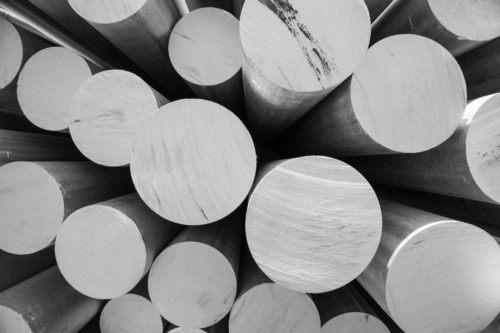The Of Stahl Specialty Company
The Of Stahl Specialty Company
Blog Article
All about Stahl Specialty Company
Table of ContentsThe 5-Minute Rule for Stahl Specialty CompanyThe 7-Second Trick For Stahl Specialty CompanyThe smart Trick of Stahl Specialty Company That Nobody is DiscussingThe 8-Second Trick For Stahl Specialty CompanyThe Best Strategy To Use For Stahl Specialty Company
The subtle difference depends on the chemical material. Chemical Comparison of Cast Light weight aluminum Alloys Silicon advertises castability by decreasing the alloy's melting temperature and enhancing fluidness throughout spreading. It plays a crucial function in enabling complex molds to be filled accurately. Furthermore, silicon contributes to the alloy's strength and put on resistance, making it important in applications where durability is essential, such as auto components and engine elements.It additionally improves the machinability of the alloy, making it less complicated to process into ended up products. In this method, iron adds to the total workability of light weight aluminum alloys.
Manganese adds to the toughness of aluminum alloys and improves workability. It is frequently utilized in wrought light weight aluminum items like sheets, extrusions, and accounts. The existence of manganese help in the alloy's formability and resistance to cracking during fabrication processes. Magnesium is a light-weight component that gives stamina and impact resistance to light weight aluminum alloys.
It permits the manufacturing of lightweight elements with superb mechanical properties. Zinc enhances the castability of light weight aluminum alloys and helps regulate the solidification process during spreading. It enhances the alloy's stamina and firmness. It is often found in applications where detailed forms and great details are needed, such as decorative castings and certain vehicle components.
Little Known Questions About Stahl Specialty Company.
Because aluminum-silicon alloys have excellent casting residential properties, high gas residential properties, basic processes, and superb deterioration resistance, aluminum-silicon alloys are most typically utilized in the die-casting sector in the house and abroad. At the same time, aluminum-silicon alloys are additionally fairly early and widely identified alloys created and utilized in die-casting. After continual study and improvement, the majority of the existing international mainstream aluminum-silicon alloys have actually been completed and are absolutely nothing greater than A356, A360, A380, ADC12, B390, and A413.
The key thermal conductivity, tensile strength, return strength, and prolongation differ. Among the above alloys, A356 has the greatest thermal conductivity, and A380 and ADC12 have the lowest.

Stahl Specialty Company Fundamentals Explained
In accuracy casting, 6063 is appropriate for applications where complex geometries and premium surface area coatings are extremely important. Instances consist of telecommunication rooms, where the alloy's premium formability enables sleek and cosmetically pleasing styles while keeping structural honesty. Likewise, in the Illumination Solutions industry, precision-cast 6063 parts produce stylish and reliable lights fixtures that need intricate forms and good thermal performance.
(https://dzone.com/users/5301552/stahlspecialc.html)
It brings about a finer surface area finish and far better rust resistance in A360. The A360 displays premium elongation, making it optimal for facility and thin-walled elements. In precision spreading applications, A360 is appropriate for markets such as Consumer Electronic Devices, Telecommunication, and Power Tools. Foundry. Its enhanced fluidity enables intricate, high-precision parts like smart device housings and interaction device real estates.

In accuracy casting, light weight aluminum 413 radiates in the Customer Electronics and Power Tools sectors. This alloy's premium corrosion resistance makes it an outstanding option for outdoor applications, ensuring long-lasting, sturdy items in the discussed industries.
The Ultimate Guide To Stahl Specialty Company
The light weight aluminum alloy you choose will significantly affect both the casting process and the homes of the last item. Due to the fact that of this, you should make your choice meticulously and take an educated strategy.
Establishing the most suitable light weight aluminum alloy for your application will more helpful hints suggest considering a broad selection of features. The initial category addresses alloy attributes that impact the production process.
The alloy you pick for die spreading straight impacts a number of facets of the spreading procedure, like how very easy the alloy is to deal with and if it is prone to casting issues. Warm breaking, also recognized as solidification fracturing, is a regular die casting issue for aluminum alloys that can result in internal or surface-level rips or fractures.
Stahl Specialty Company Things To Know Before You Get This
Particular aluminum alloys are a lot more vulnerable to warm splitting than others, and your selection should consider this. One more usual defect found in the die casting of aluminum is pass away soldering, which is when the cast stays with the die walls and makes ejection difficult. It can harm both the actors and the die, so you ought to try to find alloys with high anti-soldering properties.
Rust resistance, which is currently a noteworthy characteristic of aluminum, can differ significantly from alloy to alloy and is a vital characteristic to consider depending on the ecological conditions your item will be exposed to. Use resistance is an additional building typically sought in light weight aluminum items and can distinguish some alloys.
Report this page